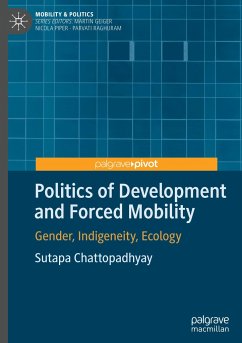
Externalising Migration Governance Through Civil Society
Tunisia as a Case Study
Versandkostenfrei!
Versandfertig in 6-10 Tagen
38,99 €
inkl. MwSt.
Weitere Ausgaben:

PAYBACK Punkte
19 °P sammeln!
This book investigates how the externalisation of EU migration policies is implemented in Tunisia after the fall of the Ben Ali regime in 2011 through the involvement of civil society organisations. The 'democratic transition' initiated by the Tunisian Revolution led to the emergence of a 'vibrant civil society' as a new actor in the implementation of migration policies. In a country where migration issues are highly politicised and have strongly entered the public space, civil society is now included in the EU-Tunisia negotiation process and is assigned the role of an intermediary for the imp...
This book investigates how the externalisation of EU migration policies is implemented in Tunisia after the fall of the Ben Ali regime in 2011 through the involvement of civil society organisations. The 'democratic transition' initiated by the Tunisian Revolution led to the emergence of a 'vibrant civil society' as a new actor in the implementation of migration policies. In a country where migration issues are highly politicised and have strongly entered the public space, civil society is now included in the EU-Tunisia negotiation process and is assigned the role of an intermediary for the implementation of controversial European policies related to sedentarisation of the Tunisian population and to the construction of Tunisia as a 'country of destination'. The volume concludes by suggesting an alternative way of thinking about migrant struggles challenging the European border regime as 'uncivil society' struggles.












